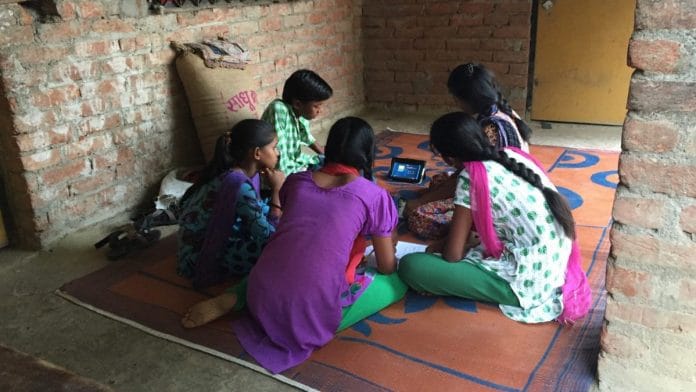New Delhi: More than 6,000 children have lost their mothers while the fathers of 1,411 children have passed away since the Covid pandemic hit India last year, the National Commission for Protection of Child Rights (NCPCR) told the Supreme Court Tuesday.
According to the NCPCR data, which is a statutory body that works for child rights, 1,742 children lost both parents to the pandemic, 7,464 are now in single-parent households while 140 children have been abandoned from March 2020 to 29 May 2021. The commission collected this data from different states.
The submission was made by the child rights body before a bench led by Justice L.N. Rao, which was hearing an application urging the court to address the emerging problem of children getting orphaned during the pandemic.
In the case of a single-parent loss, the NCPCR did not make any distinction between an earning or a non-earning member. It has also taken into account deaths irrespective of the cause. This means deaths due to post-Covid complications are also included in the data, the bench was told.
The NCPCR statement was in response to the top court’s query last week. The body was asked to provide details of steps it has taken to provide protection to children who have lost their parents in the last one year.
Also read: At least 40 children orphaned due to Covid traced in Delhi, says child rights body
Actual numbers could be higher
However, during the hearing, it emerged that the figure could be higher than what NCPCR projected in its submissions since several states could not upload their data to the commission’s portal.
The counsel for Maharashtra and Rajasthan complained the portal, created only for the purpose of hosting information on such children, was not user-friendly and made it difficult for state officials to feed the data.
On this, NCPCR counsel Swarupama Chaturvedi clarified the procedure laid down to gather the data. She said the body had devised a six-stage procedure for states to fill up the information on the portal and the same was to maintain constant monitoring of the well-being of orphaned children or those who have lost one parent.
She said the states have to fill up the details regarding the children stage-wise.
“It is a continuous process. So, for now the states can provide us information till stage 2 (which includes the social investigation report on the child) and the remaining stages can be filled up later,” she explained.
This led the bench to direct all states to give details of children till stage 2, as it fixed 7 June to hear the matter again. It also directed the states to update the information on the portal before the next date of hearing.
Also read: Bihar govt to provide Rs 1,500 per month to children orphaned by Covid
Most orphans in MP, UP tops list of ‘vulnerable children’
According to the NCPCR affidavit, 4,860 boys and 4,486 girls have been affected due to loss of either single or both parents since March last year.
The age demographic of these children shows that 3,711 children in the age group of 8-13 years were severely affected, followed by 1,712 in the 16-17 category and 1,620 in the bracket of 14-15 years.
With 318 children orphaned and 104 abandoned, Madhya Pradesh topped the list in these two categories.
Uttar Pradesh, meanwhile, recorded the highest number of children who lost one parent with 1,830 children living with single parents.
The state also has the highest number of children in “vulnerable position” with 2,110 children in total who have been orphaned, abandoned or have lost one parent. It is followed by Bihar, with 1,327 vulnerable children, including 292 orphans and 1,035 from single-parent households.
Also read: NCPCR devises online portal ‘Bal Swaraj’ for children affected by Covid-19
Steps taken by NCPCR
In its affidavit before the top court, NCPCR also cited the central government’s recent decision to extend financial assistance to orphans and children in need and care and protection from the PM Cares Fund.
Since the affidavit did not elaborate further on the scheme, the bench asked the central government counsel, Additional Solicitor General Aishwarya Bhatti, to file a comprehensive report on the modalities that will be followed to release funds in favour of the affected children.
The commission also said it has launched ‘SAMVEDNA’, a tele-counselling service for children during Covid. “It is respectfully submitted that till date more than 1100 tele-counselling have been undertaken/ provided by the commission.”
It further noted that it has issued an advisory to all states, asking them to make sure that children — both with single parents or orphans — studying in a private school to continue to be in the same school, expenditure of which may be borne by the appropriate state government under the Right to Education Act.
According to this law, the state government is under obligation to bear expenses of children belonging to the Economically Weaker Section (EWS) society in a private school till Class 8.
For classes above 8, which is beyond the scope of the RTE, the state governments have been directed to devise guidelines for schools or issue necessary directions or devise a policy for reimbursing the expenditure on education of these children.
Also read: Here’s how you can legally adopt a child in India, and it’s not through WhatsApp or Twitter






